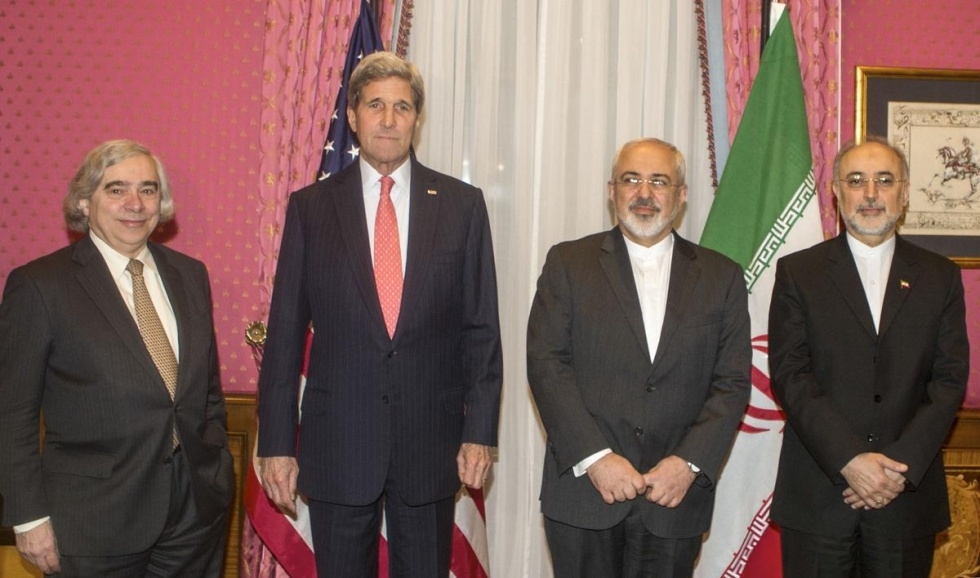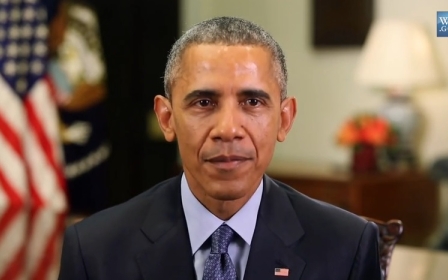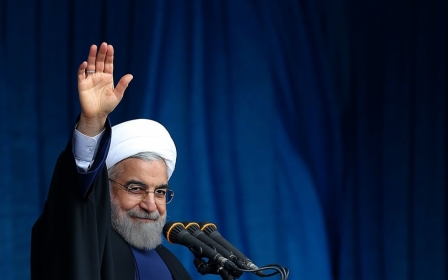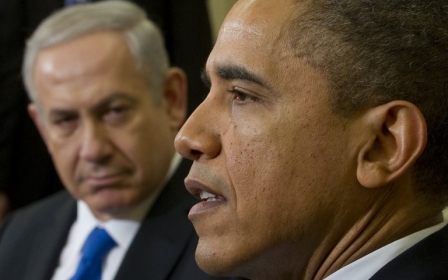US sees 'path' to long-elusive Iran deal

By Jo Biddle and Simon Sturdee
LAUSANNE, Switzerland - A nuclear deal with Iran capping over a decade of talks is in sight by a 31 March deadline, US officials said, but they remained cautious as top diplomat John Kerry prepared Thursday for down-to-the-wire negotiations.
Kerry will push Iran to agree the outlines of the long-elusive deal disabling parts of its nuclear infrastructure by Tuesday, in return for an easing of crippling global sanctions, at renewed talks in the Swiss lakeside town of Lausanne.
"We very much believe that we can get this done by the 31st," a senior State Department official told reporters travelling on Kerry's plane.
"We can see a path forward here to get to an agreement, we can see what that path might look like ... that doesn't mean we'll get there," the official cautioned.
The "framework" political accord would be the first in a two-step process, with a final deal due by the end of June.
It remains unclear how detailed this framework between Iran and six powers will be, particularly with the US and France appearing split on the issue.
A senior European official also said any deal may only be an internal document, a fact sheet - or not a text at all.
The State Department official admitted the format of any deal was under negotiation.
"We believe and know that we will have to share as many specific details publicly as we can, with the caveat that the work of doing annexes is very tough work," the US official said.
"March 31 is a real date and it is an important one," the official said, but acknowledged any framework deal would have to be fleshed out by a wealth of detailed, technical annexes by the end of June.
'Bad tactic'
Kerry is under pressure from a hostile Congress to pin down something concrete after 18 months of intense talks with the Islamic Republic.
But Iran's supreme leader Ayatollah Ali Khamenei has criticised the two-step process.
"Any agreement must come in one step, and include both a general framework and details," Khamenei said in February.
And France, seen as the most hawkish among the six powers - the others being the US, China, Russia, Britain and Germany (the P5+1), has also expressed misgivings.
France's ambassador to Washington, Gerard Araud, said on Twitter last week that aiming to agree something by 31 March was a "bad tactic", creating pressure to get a deal "at any price".
Iranian Foreign Minister Mohammad Javad Zarif, who will sit down again with Kerry on Thursday, hit out at the P5+1 for not being able to "coordinate its stance".
The 31 March and late June target dates were set after negotiators failed in November - for the second time - to meet a deadline to turn a November 2013 interim deal into a comprehensive accord.
Such a deal, the powers hope, would put an Iranian nuclear bomb out of reach by downsizing Iran's nuclear programme after more than a decade of suspect activities.
It could also boost relations between Iran and the West after decades of acrimony, potentially including more cooperation fighting Islamic State militants in Syria and Iraq.
But Iran, which denies wanting the bomb, is loath to dismantle any of its nuclear facilities unless in return the powers dismantle painful UN, US and EU sanctions that have choked its economy.
The P5+1 counter that they can only be suspended - not terminated - over a long period, allowing them to be "snapped back" if Iran violates the deal.
Even before a deal is agreed, critics have been lining up to say that it will not do enough to stop Iran getting the bomb.
These include Israel, the Middle East's sole if undeclared nuclear power, as well as Sunni Muslim Gulf monarchies like Saudi Arabia, Shiite Iran's main regional rival.
But the main thorns in President Barack Obama's side have been his Republican opponents who sparked a furore by warning Iran in an open letter that Obama does not have the power to conclude a durable agreement without their backing.
Republicans are also readying legislation that could impose fresh sanctions on Iran and oblige Obama to get any deal approved by Congress.
"Anybody standing up in opposition to this has an obligation to stand up and put a viable realistic alternative on the table," Kerry said before leaving Washington.
"And I have yet to see anybody do that."
New MEE newsletter: Jerusalem Dispatch
Sign up to get the latest insights and analysis on Israel-Palestine, alongside Turkey Unpacked and other MEE newsletters
Middle East Eye delivers independent and unrivalled coverage and analysis of the Middle East, North Africa and beyond. To learn more about republishing this content and the associated fees, please fill out this form. More about MEE can be found here.




